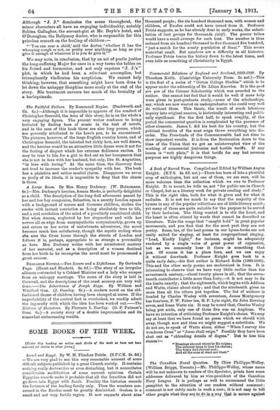Commercial Relations of England and Scotland, 1603-1707. By Theodora Keith.
(Cambridge University Press. 2s. net.)—This is the first of a series of "Girton College Studies" which is to appear under the editorship of Dr. Lilian Knowles. It is the quid pro quo of the Cairnes Scholarship which was awarded to the author. One cannot but feel that it would be well if more help were given to post-graduate study,—some of the scholarships, say, which are now wasted on undergraduates who could very well do without them. This thesis, the result of much laborious inquiry into original sources, is historically interesting and politi- cally significant. For the first half, to speak roughly, of the period the commercial question is complicated by the presence of other elements. James L did his best for his country, but the political troubles of the next reign threw everything into dis- order. The Free-trade of the Commonwealth had not time to show important results. It is from the Restoration down to the time of the Union that we get an uninterrupted now of the working of commercial jealousies and hostile tariffs. If any lesson is "writ plain," it is that tariffs for any but revenue purposes are highly dangerous things.






































 Previous page
Previous page